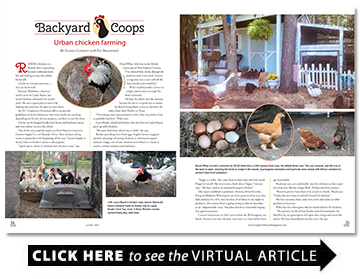Backyard Coops
Urban chicken farming
BY Elaina Conant with Pat Bradford
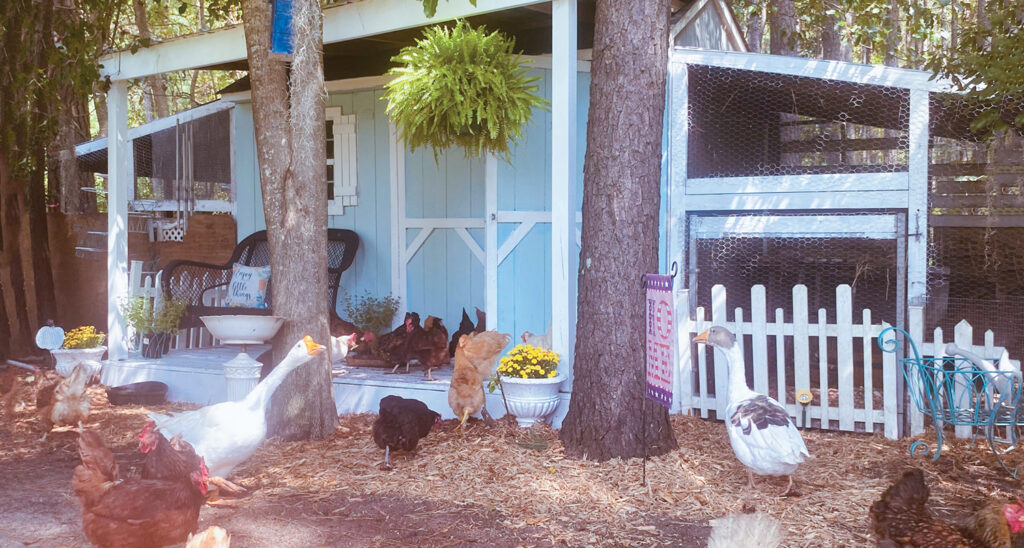
Raising chickens is a lifestyle that is spreading beyond traditional farm life and finding its way into urban backyards.
Chicks are not just cute pets — they are hard work.
Kiersten Wildeboer, who lives on five acres in Castle Hayne, has raised chickens and ducks for several years. She says a great place to start is by making sure you have the space to raise them.
An NC Cooperative Extension office can provide guidelines on local ordinances, how many birds you can keep depending on the size of your property, and how to care for them.
Chicks can be bought locally from farms and hardware stores, and even online via sites like eFowl.
One of the most popular sources in New Hanover County is Farmers Supply Co. on Oleander Drive. Their chicken selling season is primarily in the beginning of the year. Tractor Supply in Rocky Point in Pender County is also popular.
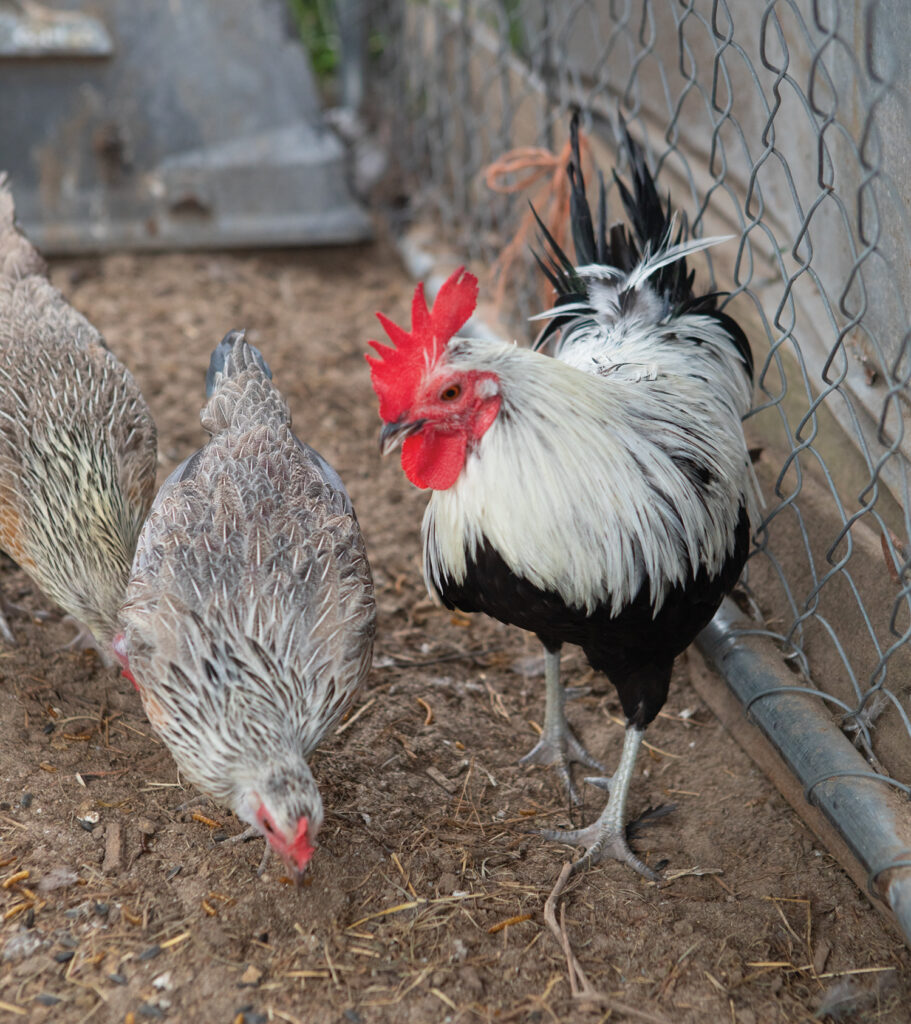
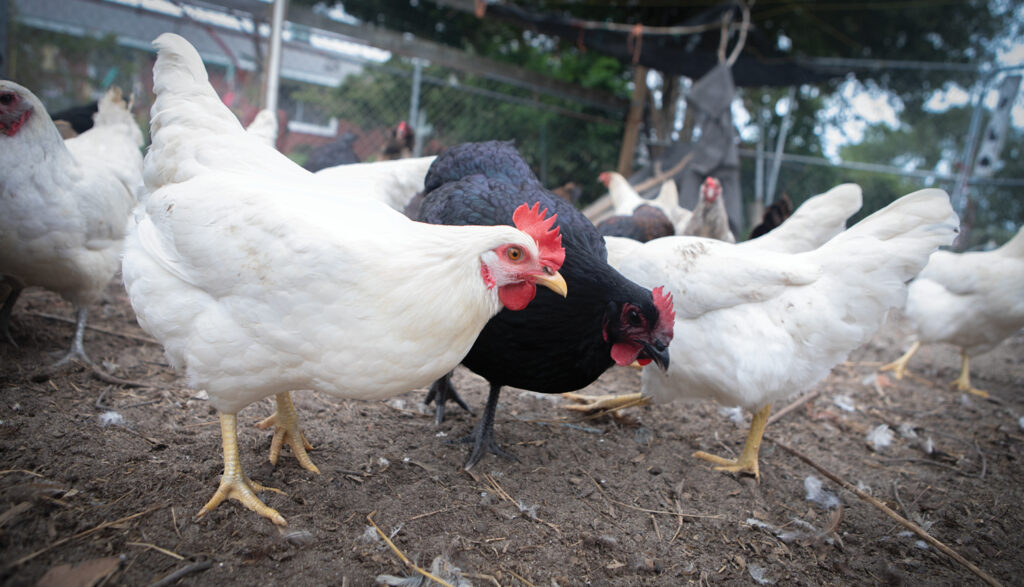
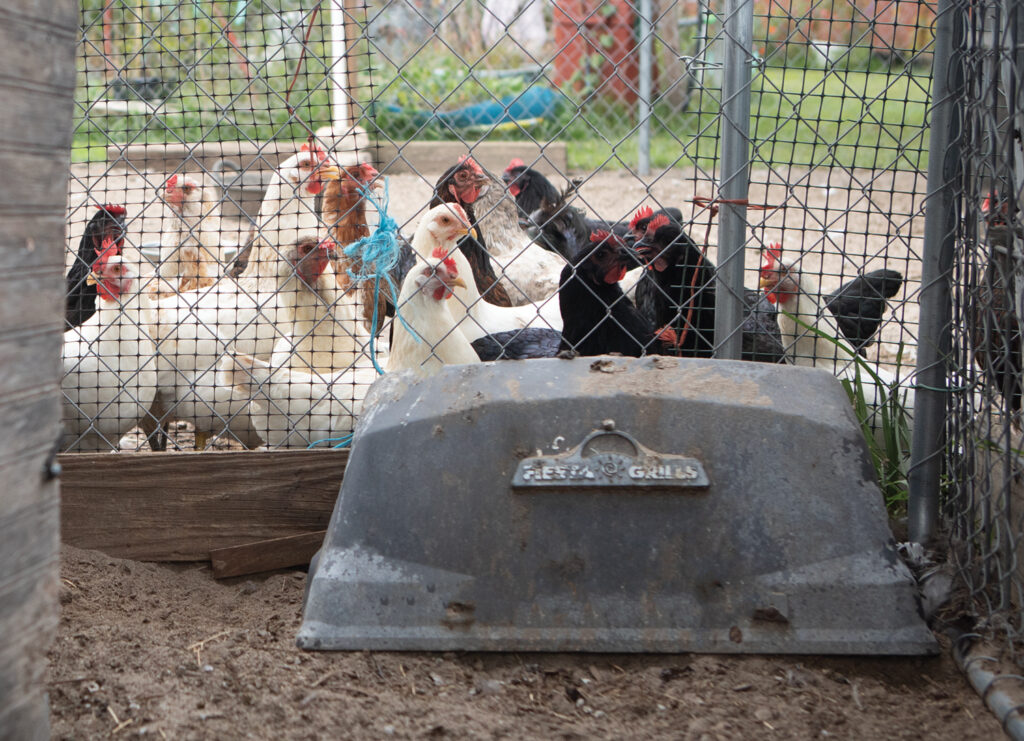
“I grew up on a farm, so chickens were not new to me,” says David Wiley, who lives in the Myrtle Grove area of New Hanover County. “I’ve ordered baby chicks through the mail ever since I was a kid. I receive a magazine once a year with all the latest breeds and availability.”
Wiley studied poultry science as a high school senior through NC State University.
He buys his chicks over the internet because he says it is a good way to ensure he doesn’t bring home a virus or bacteria. He orders from Ideal Poultry in Texas.
“Preventing cross-contamination is why I buy my poultry from a reputable hatchery,” Wiley says.
Laura Braak, a backyard farmer who also lives in Castle Hayne, grew up with chickens.
“My mom had them when I was a child,” she says.
Besides providing farm-fresh eggs, Angela Sawyers suggests another advantage of having chickens: as emotional support animals. Poppy, one of nine chickens in her flock in Leland, is used to combat isolation and loneliness.
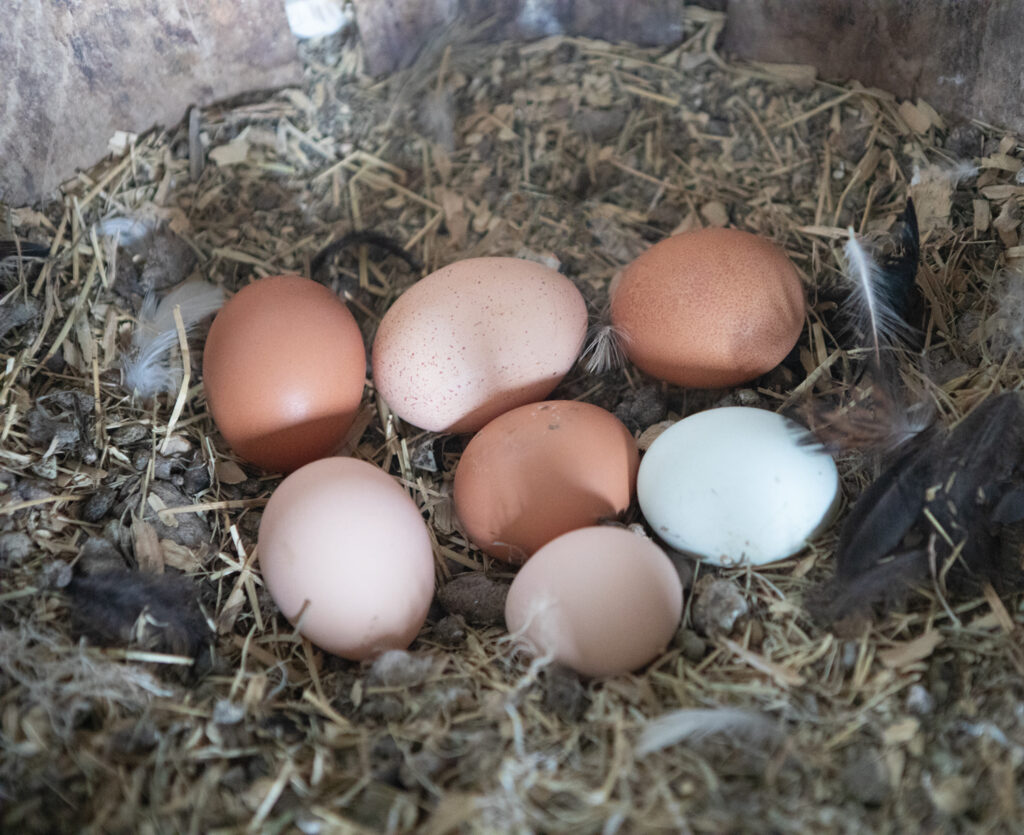
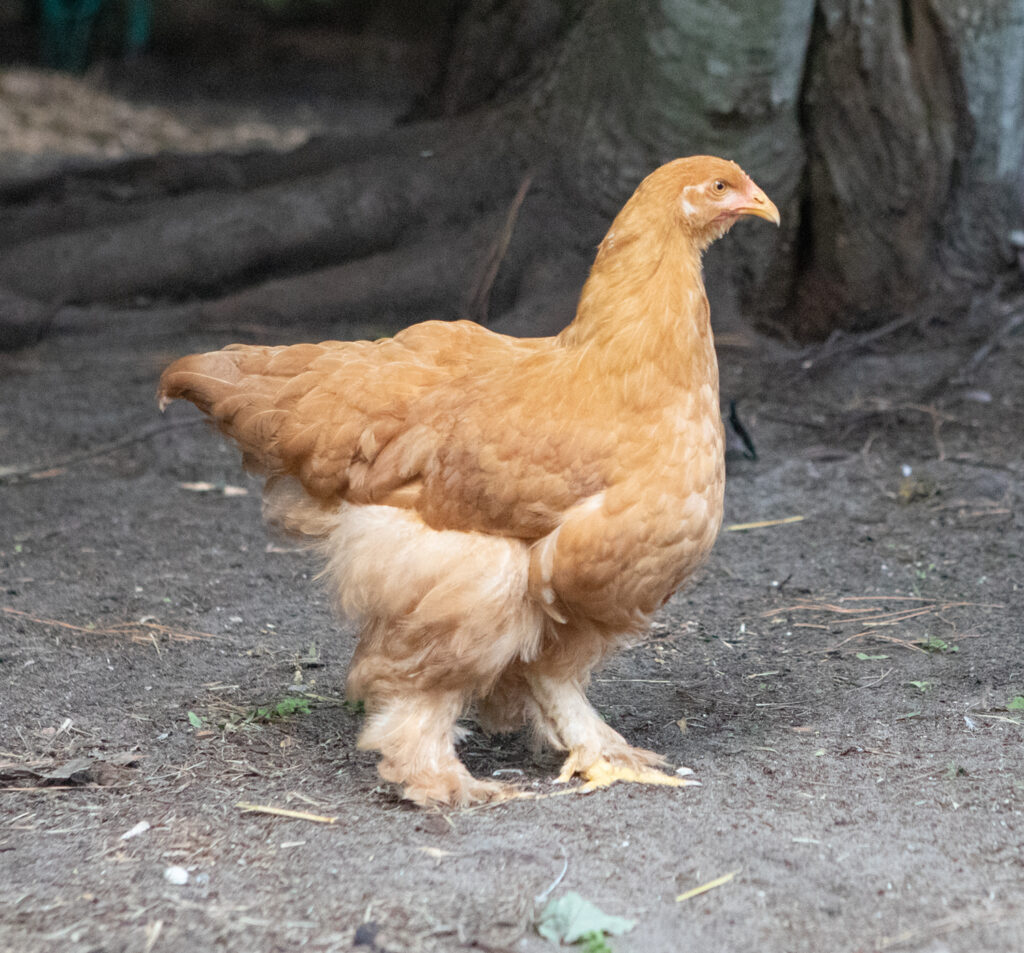
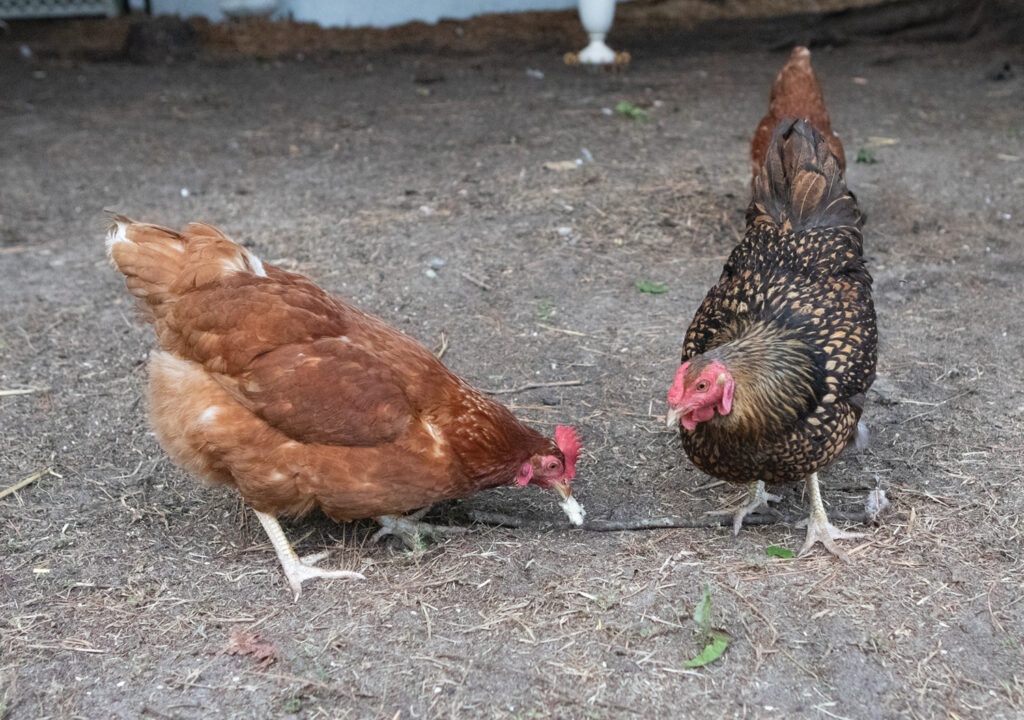
“Poppy is a Silkie. She came from an older lady who had raised Poppy by herself. She even wrote a book about Poppy,” Sawyers says. “She has a card as an emotional support chicken.”
One major roadblock is predators. Attorney Brian Kromke, living in Midtown Wilmington on three quarters of an acre, has had chickens for a few years but lost all of them in one night to predators. His current flock is going strong in what he describes as an “impenetrable coop,” but jokes that he is constantly waging war against possums.
Certain limitations on fowl exist within the Wilmington city limits. Roosters are not allowed, and there is a limit of five hens per household.
Braak says you can comfortably raise five chickens on three quarters of an acre. She has a larger flock, 30 hens and three roosters.
“Roosters protect hens from a fox attack or a hawk,” Braak says. “I had a fox just come in and kill a bunch of chickens.”
She lists raccoons, foxes, and even crows and snakes as other predators in her area.
Wiley has two white geese that he raised with his 10 chickens.
“They protect my flock from hawks and other predators. If a bird flies by, my guard geese will open their wings and sound the alarm. My hens immediately run for cover,” he says.
Every backyard operation is different, but one thing those raising chickens seem to agree on is the quality of farm-fresh eggs versus store-bought.
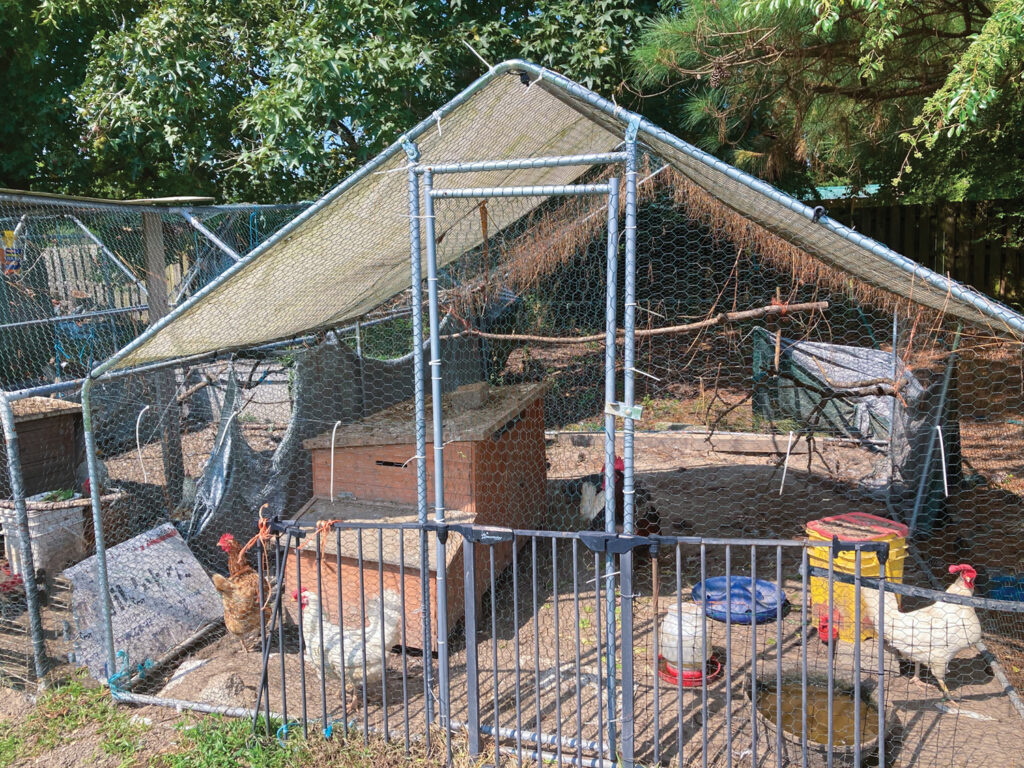
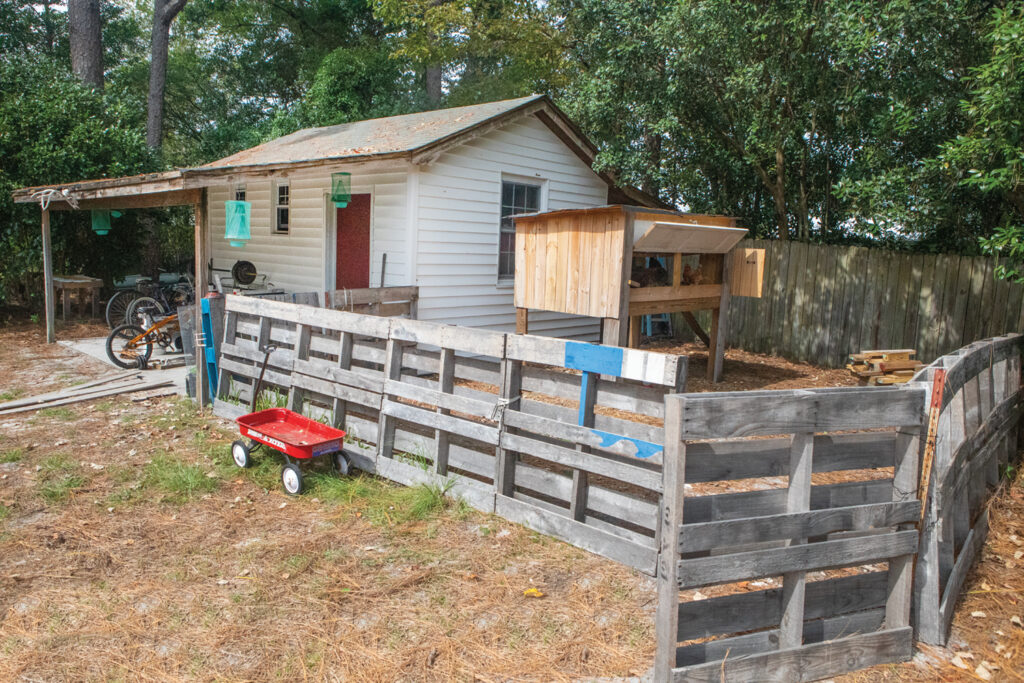
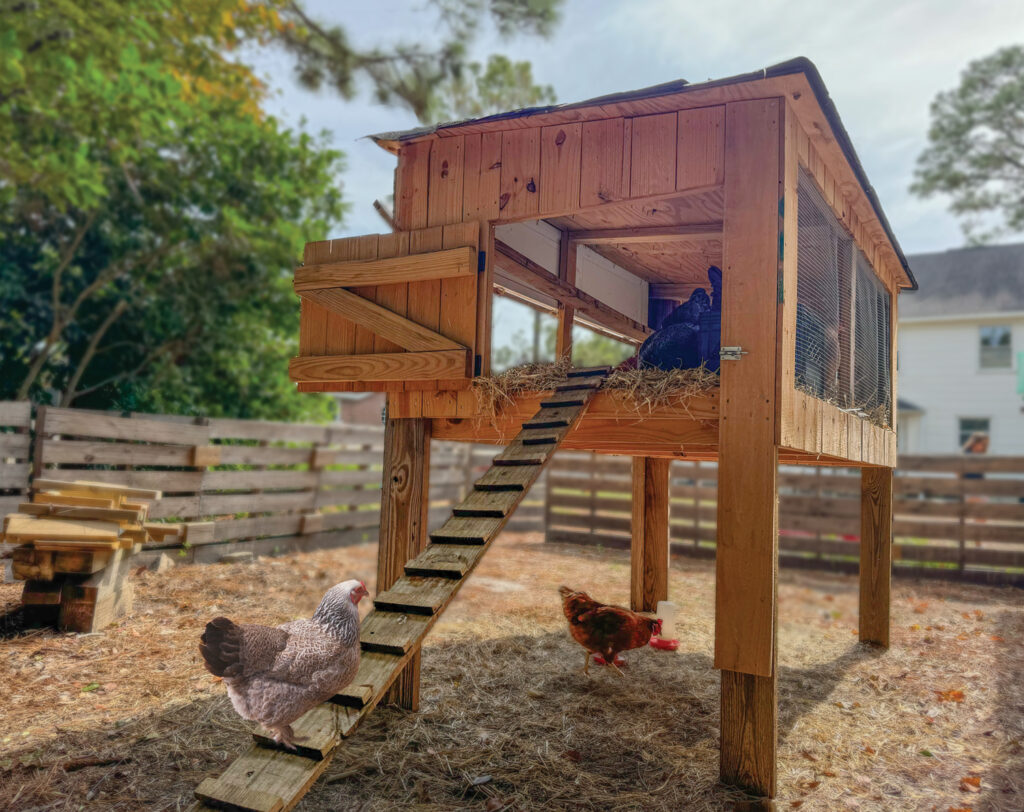
“I can tell the difference,” says Wildeboer, who raises Barred Rock, known as good producers and being family friendly. “If you feed your chickens well, they will feed you well.”
What chickens eat does matter. Kromke says the Comet breed of chickens are the best egg layers. Silver Phoenix is Braak’s favorite. Opinion vary as to the best breed.
“I know what I put into my chickens. My chickens are foragers, they are not vegetarians at all,” says Braak.
In the winter she adds meal worms, sunflower seeds, and whole corn to their diet.
“Rhode Island Reds have always been my number one,” Wiley says.
His flock has five Reds and five Cinnamon Queens, which are known for being hardy and producing eggs all year long. Some chickens do not lay well when it is too hot or too cold. Cinnamon Queens are referred to as the queen of egg laying with five to six brown eggs per week.
Humans have co-existed with chickens for centuries, whether to breed them, process them, enjoy their eggs, or even for emotional support. The species is one that is intelligent, prosperous, and adorable.
Youtube has a plethora of DYI chicken coop building videos.
